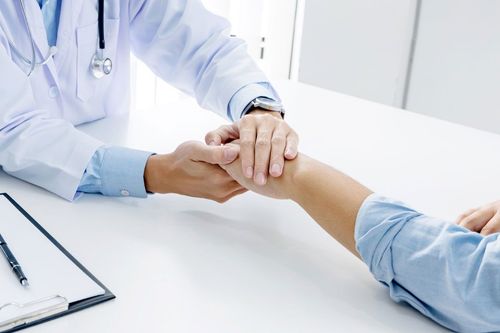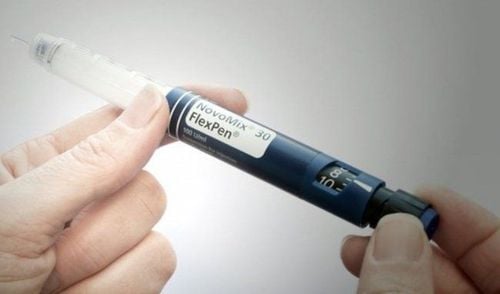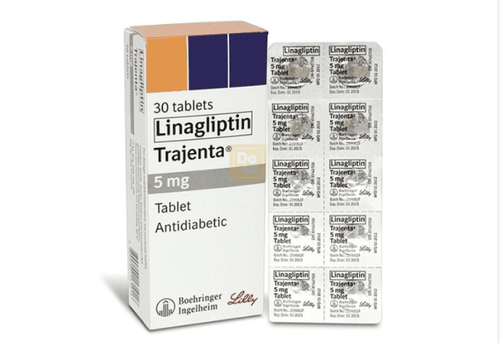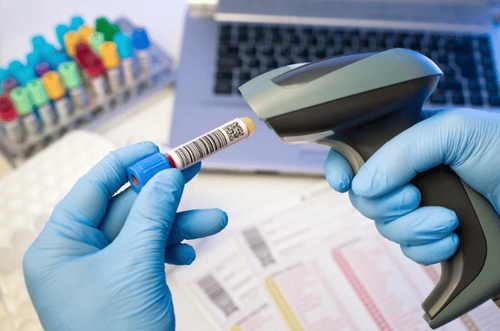This is an automatically translated article.
This article is expertly consulted by MSc Vu Thi Duyen - Doctor of Nephrology - Endocrinology - Department of Medical Examination & Internal Medicine - Vinmec Hai Phong International General Hospital.Diabetes (also known as diabetes) tends to be younger and has unpredictable developments. When feeling nauseous, thirsty, numb limbs, slow-healing wounds, ... young people need to take the initiative to immediately go to a medical facility for examination, because these may be signs of diabetes.
1. What is diabetes?
Diabetes mellitus (also known as diabetes) is a heterogeneous metabolic disorder characterized by elevated blood sugar levels in the body. The cause is usually due to unstable insulin levels in the body (maybe deficient or even excess). If you have diabetes, and you control your blood sugar and regularly monitor it well, then surely your sugar level is within a safe range, almost like a normal person.Based on the characteristics and course of the disease, there are two types of diabetes: type 1 diabetes, type 2 diabetes, secondary diabetes and gestational diabetes.
2. Diabetes warning signs
Most of the early symptoms of diabetes are higher than normal blood glucose levels. The warning signs of diabetes can range from very mild to no symptoms at all. Some people don't realize they have a serious illness or complications before they find out.2.1. Symptoms of type 1 diabetes The disease progresses very quickly, with symptoms often occurring rapidly over a few days or weeks. Often there is a typical 4 multiple syndrome.
Hunger and fatigue: Your body converts the food you eat into glucose that your cells use for energy. But your cells need insulin to absorb glucose. If your body doesn't make enough or any insulin, or if your cells are resistant to the insulin your body makes, glucose can't get into them and you don't have energy. This can make you hungrier and more tired than usual. Urinating more often and thirsting more: The average person has to urinate four to seven times in 24 hours, but people with diabetes due to high blood sugar can pass a lot more than usual. Why is it like that? Normally your body reabsorbs glucose as it passes through your kidneys. But when diabetes pushes your blood sugar high, your kidneys may not be able to bring it all back. This causes the body to make more urine and to lose water. The result: You'll have to go more often. You can also go out more. Because you pee a lot, you may be very thirsty. As you drink more, you will also pee more. Dry mouth, extreme thirst, and itchy skin: Because your body is using fluids to urinate, there's less moisture for other things. You may become dehydrated, and your mouth may feel dry. Dry skin can make you itch. A lot of weight loss: Although the patient eats a lot, he loses a lot of weight.
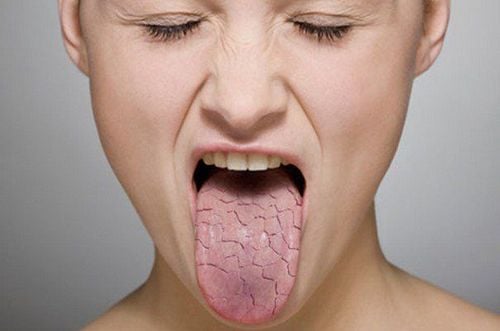
Yeast infections: Both men and women with diabetes can get these. Yeast eats glucose, so having plenty around makes it thrive. Infection can develop in any warm and moist fold of skin, including: between fingers and toes, under breasts, in or around genitals
Slow-healing sores or cuts: Over time , high blood sugar can affect your blood flow and cause nerve damage that makes it difficult for your body to heal. Pain or numbness in your legs or feet. This is another result of nerve damage.
2.3. Symptoms of Gestational Diabetes High blood sugar during pregnancy often has no symptoms. You may feel a little thirstier than usual or have to urinate more often. Usually detected mainly on 3-segment glucose test at 28 weeks gestation.

3. Who is at risk of diabetes? Treatment
Diabetes can happen to anyone, and it affects both type 1 and type 2 diabetes. You may experience one or more of the warning signs associated with diabetes. If you are in doubt, go to medical facilities or hospitals to be diagnosed and treated by a doctor.If you suspect you may have diabetes, seek medical attention immediately. During your visit, your doctor will ask you to talk about your symptoms, any family history of diabetes, medications you take, and allergies you have. Based on the information you provide, your doctor will decide to do some tests for you. There are several tests to diagnose diabetes:
HbA1C: This test shows your average continuous blood glucose level over the past 2 or 3 months. This test does not require you to fast or drink anything. Fasting blood sugar (FPG): You will need to fast for at least 8 hours before this test. Oral Glucose Tolerance (OGTT): This test takes 2 to 3 hours. Your blood glucose level is tested initially and then repeatedly at 2 hour intervals after drinking a particular sweetened beverage. Random plasma glucose test: You can do this test at any time and do not need to fast. To better understand your condition and how to treat it, you should also ask your doctor questions about your warning signs or the condition itself.
3.1 Treating Diabetes
Diabetes can be treated with a variety of methods. Adjusting your diet, being physically active, and monitoring your condition regularly are important if you have diabetes, no matter what type of diabetes you have.
If you have type 1 diabetes you will be on mandatory insulin therapy for the rest of your life, because your body does not produce insulin on its own. If you have type 2 diabetes, if you can control it, with lifestyle changes, such as diet and exercise. You may also need to take oral or injected medications, including insulin or metformin, to control your blood sugar.
When you have diabetes you will need to seriously monitor your diet to prevent blood sugar from getting too high. This often means watching your carbohydrate intake as well as limiting processed, low-fiber foods. Your doctor will give you a treatment plan to help you control your blood sugar.
It is very important advice that if you suspect you have symptoms of diabetes do not hesitate to see your doctor. When the disease is treated early, it is more effective to control the disease, which is also key to controlling symptoms and preventing more serious health problems.
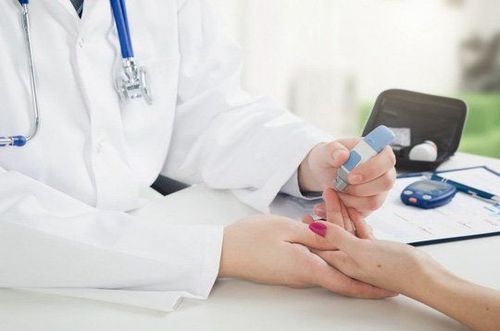
Diabetes mellitus is a progressive disease that may require reevaluation and change in treatment plan over time.
3.2 Ways to prevent diabetes
Diabetes may not be prevented in all cases. Type 1 diabetes cannot be prevented. You can reduce your chances of developing type 2 diabetes by adjusting your diet and staying active. However, genetics and other risk factors can increase your risk despite your best efforts.Even if you are diagnosed with diabetes you can live a full life. Diabetes requires careful planning and management, but it shouldn't stop you from participating in and enjoying daily activities.
Currently, Vinmec International General Hospital offers a diabetes screening package - dyslipidemia for customers with signs of diabetes, type 2 diabetes for the purpose of diagnosing and screening the disease. The treatment is based on quantitative blood tests, applying the oral solution test (for customers with doubtful fasting blood sugar results). ...... From there the doctor will draw conclusions and make recommendations. disease prevention advice as well as appropriate and scientific treatment for patients.
Master. Doctor. Vu Thi Duyen has more than 10 years of experience in general medical examination and treatment, especially has strengths in examination and treatment specialized in nephrology - Endocrinology. The doctor has participated in many domestic and foreign seminars and is currently a Nephrologist - Endocrinologist at the Department of General Internal Medicine, Vinmec Hai Phong International General Hospital.
Please dial HOTLINE for more information or register for an appointment HERE. Download MyVinmec app to make appointments faster and to manage your bookings easily.
Article reference source: Webmd.com





